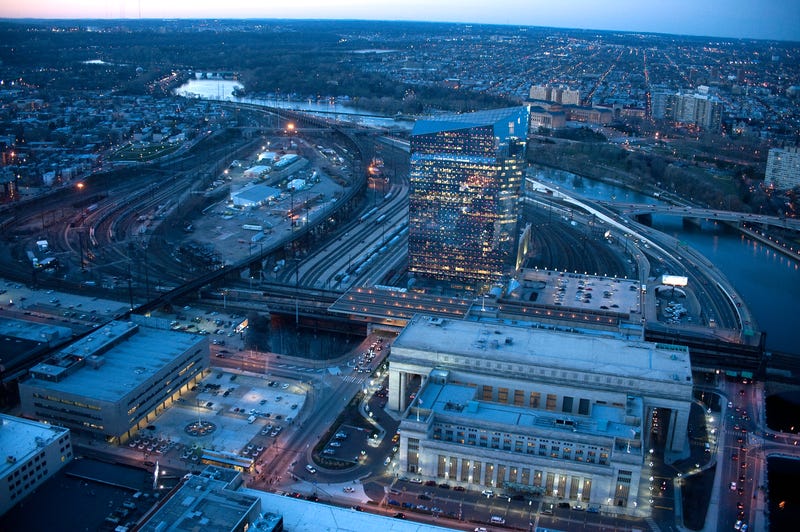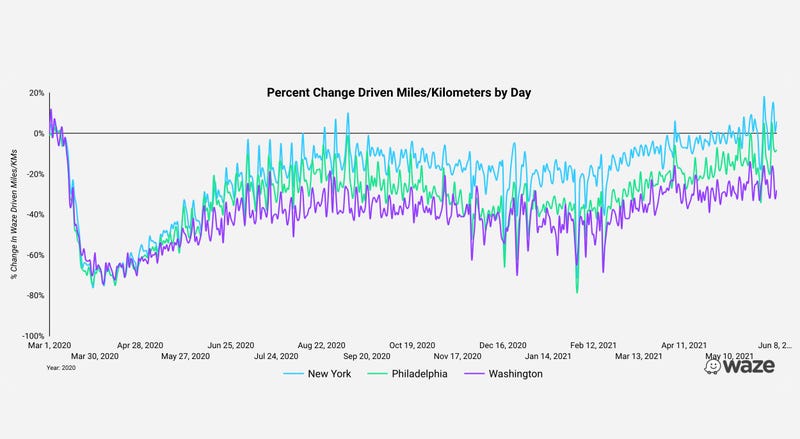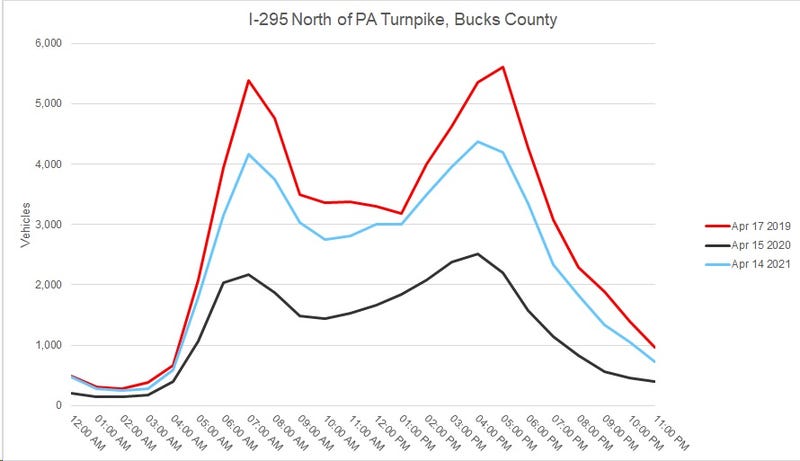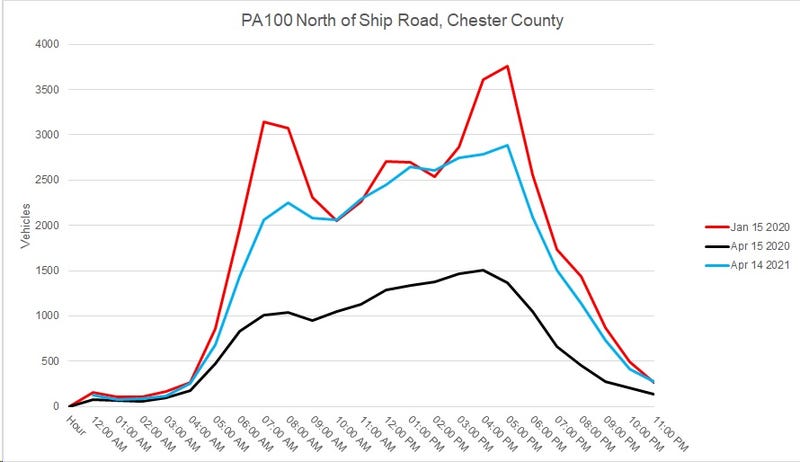
PHILADELPHIA (KYW Newsradio) — With people returning to the workplace, traffic congestion in metropolitan Philadelphia is almost back to pre-COVID-19 levels.
A transportation expert from the Delaware Valley Regional Planning Commission says drivers are back with a vengeance, but mass transit riders still need to be convinced to hop on that train, bus or trolley.
“Volumes are still down, but they're much higher than they were at the bottom, in the early stages of the pandemic," said Greg Krykewycz, associate director of multi-modal planning at the DVRPC.

“We're seeing volumes back to about 80% to 90% of normal, and we're seeing congestion that is still about 14% lower than it was prior to COVID. It's about 7% lower than it used to be in the morning peak, and about 14% lower in the evening peak.”


Still, Krykewycz said mass transit is lagging. Krykewycz said SEPTA is now at about 96% service capacity, but ridership is still off.
“SEPTA ridership is still down about two-thirds from what it was before the pandemic and regional rail — commuter rail in particular. And regional rail for SEPTA is still down more than 80%," Krykewycz explained.
"Ridership is only about 20% or thereabouts of normal ridership.”
Krykewycz detailed how the commuter rail network is centered on Center City and University City, the regional hub.
"That's the job market that is the most hit by teleworking, or affected by teleworking, and so it makes sense that that would be the slowest ridership to recover," he said.
Will will we ever get back to those pre-COVID-19 levels?
“This is sort of a once-in-a-lifetime, shock to travel patterns. We'll see," he said.
"I was definitely a five-day-a-week transit commuter before the pandemic. Right now, I'm a zero-day-a-week transit commuter. ... A year from now, I might be a three-day-a-week transit commuter or something like that.”
Krykewicz said transit carriers are starting to rethink their service to meet the changing demands. He says that means more service on non-peak hours and non-peak days.
He believes it is an interesting time to be a transportation planner, because there has never been a disruption of this length of time in the region’s history.

